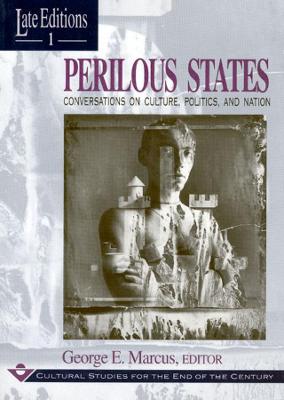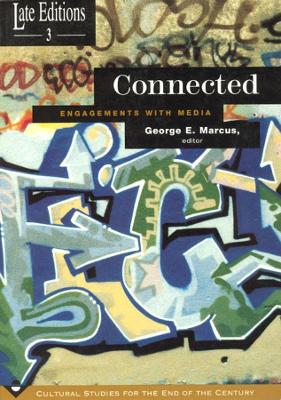Late Editions: Cultural Studies for the End of the Century S.
2 primary works • 3 total works
Book 1
Encompassing a range of disciplines - notably anthropology, politics, history, comparative literature, and philosophy - the annual publication "Late Editions" exposes unsettling dilemmas and unprecedented challenges facing cultural studies on the brink of the twenty-first century. Successive volumes appear annually until the year 2000, each engaging the predicaments of particular institutions, nations, and persons at this point of social, cultural, and political change. The project will test the limits of scholarly conventions by finding new ways to expose cultural formations emerging from the maturation or exhaustion of once-powerful ideas whose validity is now deeply in question. "Perilous States", the first volume of "Late Editions", presents conversations between American scholars, most of whom are anthropologists, and individuals situated amidst political and social upheaval with whom they share affinities.
Primarily but not exclusively from Eastern Europe, the cast includes Russian writers, Hungarian scientists and academics, Armenian politicians, Siberian religious and medical leaders, a Gypsy leader, a Polish poet, a French politician, and a white South African musician who is a self-styled Zulu. Their voices unite around themes of democracy, market economy, individual rights, and the reawakened force of suppressed ethnic and racial identities. To obtain fresh perspectives on these cultural and social transformations, the volumes consist of in-depth conversations, relayed in essay form, between scholars and individuals in other cultures with whom they share affinities. This novel approach blends the immediacy of interviews, the objectivity of journalism, and the intellectual rigor of scholarship. The second volume published in the autumn of 1994 addresses issues of science and culture. Contributors to this volume are Marjorie Balzer, Sam Beck, David B. Coplan, Michael M.J. Fischer, Nia Georges, Bruce Grant, Douglas R. Holmes, Stella Grigorian, George E. Marcus, Kathryn Milun, Eleni Papagaroufali, Paul Rabinow and Julie Taylor.
Primarily but not exclusively from Eastern Europe, the cast includes Russian writers, Hungarian scientists and academics, Armenian politicians, Siberian religious and medical leaders, a Gypsy leader, a Polish poet, a French politician, and a white South African musician who is a self-styled Zulu. Their voices unite around themes of democracy, market economy, individual rights, and the reawakened force of suppressed ethnic and racial identities. To obtain fresh perspectives on these cultural and social transformations, the volumes consist of in-depth conversations, relayed in essay form, between scholars and individuals in other cultures with whom they share affinities. This novel approach blends the immediacy of interviews, the objectivity of journalism, and the intellectual rigor of scholarship. The second volume published in the autumn of 1994 addresses issues of science and culture. Contributors to this volume are Marjorie Balzer, Sam Beck, David B. Coplan, Michael M.J. Fischer, Nia Georges, Bruce Grant, Douglas R. Holmes, Stella Grigorian, George E. Marcus, Kathryn Milun, Eleni Papagaroufali, Paul Rabinow and Julie Taylor.
Volume 4
This is a collection of ten interviews explore how producers of documentary media - filmmakers, journalists, and artists - located in societies considered marginal to the high-tech global centres respond to local and international audiences in creating their works. Interviewees include: a South African playwright who is shaping a distinctive form of activist journalism; a New Guinean producer who manages several media careers; Polish and German filmmakers developing critical documentaries on compromised new orders; a Columbian artist who provides powerful representations of endemic violence in her society; and writers from Martinique and Argentina with varied careers in the arts, media, and politics who provide tragicomic accounts of the marginal situations of their societies.
v. 3
From the frontiers of cyberspace to Tibetans in exile, from computer bulletin boards to faxes, film and videotape, the evolution of media continues to generate new avenues for cultural criticism, political activism and self-reflection. How is contemporary life affected by this proliferation of information technologies? How does the Internet influence, and perhaps alter, users' experience of community and their sense of self? In what way are giant media conglomerates implicated in these far-reaching developments? This text, the third volume in the "Late Editions" series, confronts these questions, exploring both the new pathways being forged through media and the predicaments of those struggling to find their way in the twilight of the 20th century.


